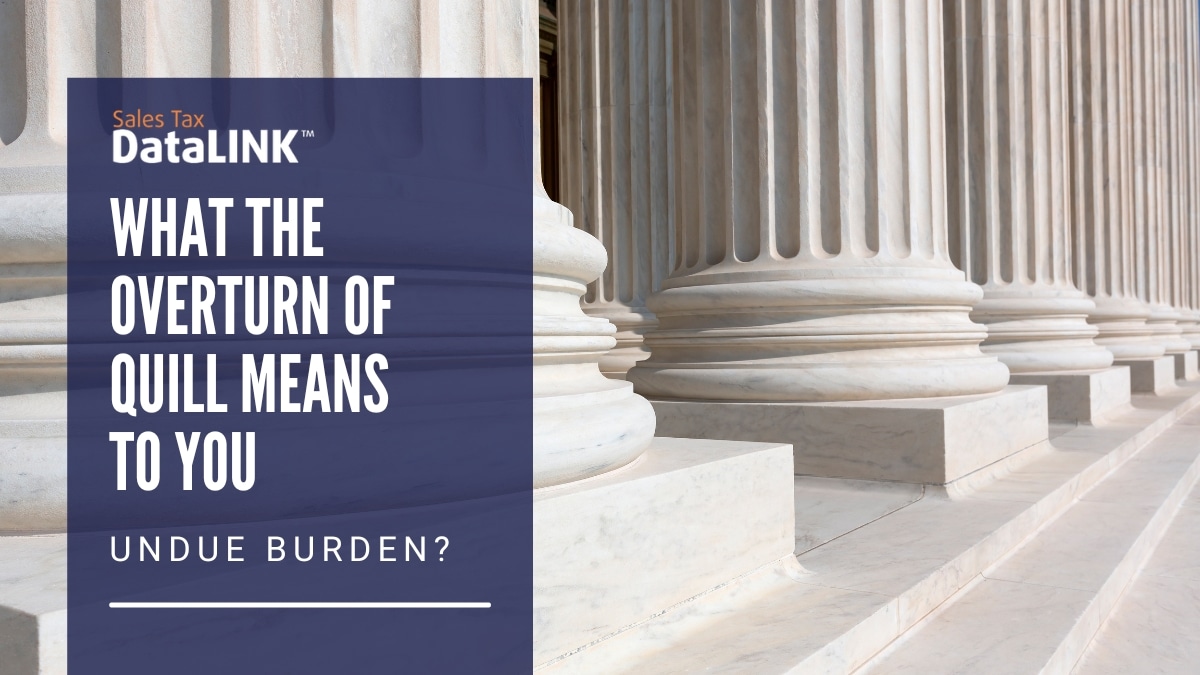Half a century ago, a Supreme Court decision known as Quill said that a company would only have to collect sales tax in a state if it had a physical presence. “Physical presence” might be a warehouse, an office building, an employee, or some other tangible presence. A company that took an order over the phone and shipped a package to a neighboring state didn’t necessarily have to collect sales tax.
The package itself, or the catalog in the hands of the customer, didn’t constitute a physical presence,
A new Supreme Court Decision, South Dakota vs. Wayfair, has changed all that. Can it be said that an e-commerce giant doesn’t have a real presence in your state just because they don’t have brick-and-mortar stores? The Supreme Court decided that it was artificial to say that an online store people check out every day on their phones is not as present as a company that keeps a stack of products in a warehouse.
The fight over internet sales tax
Sales tax for online purchases has been one of the biggest sales tax controversies for years. Brick-and-mortar stores, threatened by the phenomenal growth of online shopping, felt that the opportunity to avoid paying sales tax gave online retailers an unfair advantage.
States knew that consumers didn’t really get a tax break. States charge a use tax that goes with the sales tax. Consumers are supposed to calculate their own taxes on e-commerce purchases and pay them along with their income tax at the end of the year. In fact, only about 4% of taxpayers do that.
So states figure they’re losing out on billions of dollars in revenue. On the other hand, online sellers often feel that collecting sales tax in multiple states is an unreasonable burden on them. What if a brick-and-mortar store had to collect sales tax based on the residence of each customer, retailers ask? They’d soon see how impractical that was.
The reality of online sales tax collection
The overturn of Quill lets individual states set their own rules for sales tax collection, rather than accepting the federal standards. For example, South Dakota doesn’t require sellers to collect sales tax if they take in less than $100,000 or have fewer than 200 transactions in South Dakota.
Imagine, then, that you sell jewelry from your dining room table in Memphis. You’re a small company selling mostly online, so you figure you’re safe from the new rules. Most of your sales come from boutiques in Tennessee tourist towns. Imagine your shock when you notice that you’ve had 100 sales in South Dakota by September. That’s nine months of sales on which you did not collect sales tax. Will you just hope that you have only 99 more sales in the holiday rush? Maybe you can refuse sales to people in South Dakota after you hit sale #199? Then a $100 retail item goes viral on Pinterest and all of a sudden you see that you’re going to sell enough of those puppies in South Dakota to make you subject to the sales tax requirement.
You haven’t registered for sales tax, you haven’t collected sales tax, and you’re going to pay over most of your profit in sales tax.
Multiply that scenario by several more states, add accounting costs, and you could be closing your doors before you know it.
That’s a simple example, too. A higher-value item makes it harder to predict which states you might need to collect from. An item or service that is not taxable in your state — but is in others — could leave you completely surprised when you discover that you should have been collecting tax in some other jurisdiction. And that’s before you even think about filing.
Undue burden?
Realistically, South Dakota vs. Wayfair is just the beginning. This case overturns Quill and allows states to impose sales tax collection on companies without a physical presence in their state. Some states have already passed laws. But there will probably be many new laws, and a fair number of additional court cases before everything settles down.
Can you just stand pat until all the decisions have been made? No. You can’t go back and retroactively collect sales tax. You need a sales tax solution that stays up to date, and you might need some specialized help while you figure out your particular needs.
Sales Tax DataLINK offers a range of right-sized sales tax solutions, with U.S.-based sales tax specialists to help you determine which solutions are best for your specific situation.
Contact us today to discover the solutions that will meet your needs.




